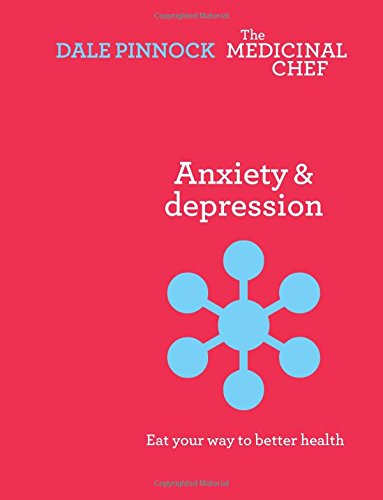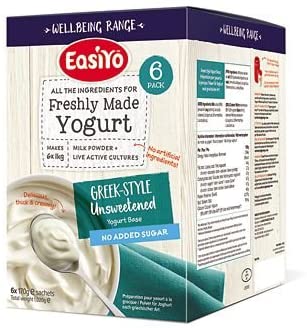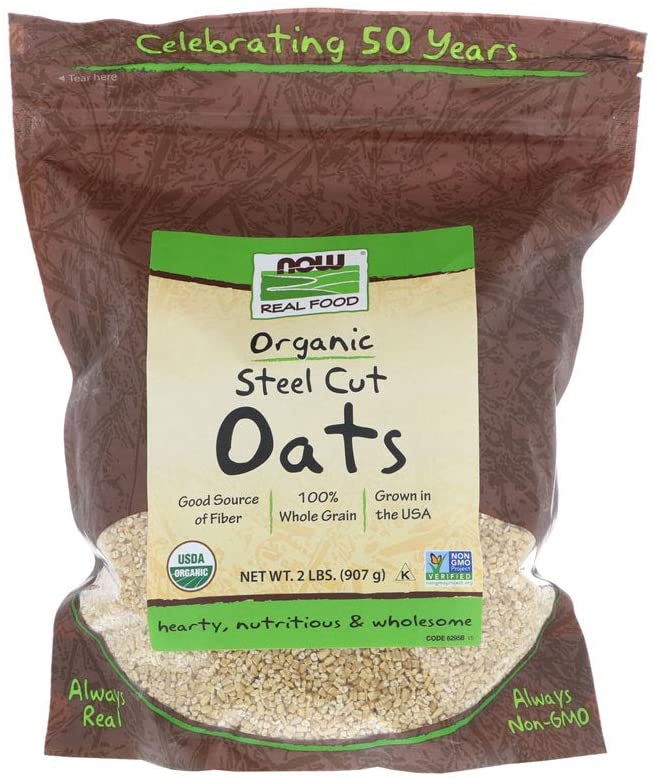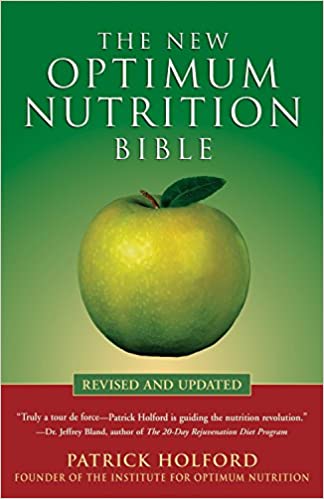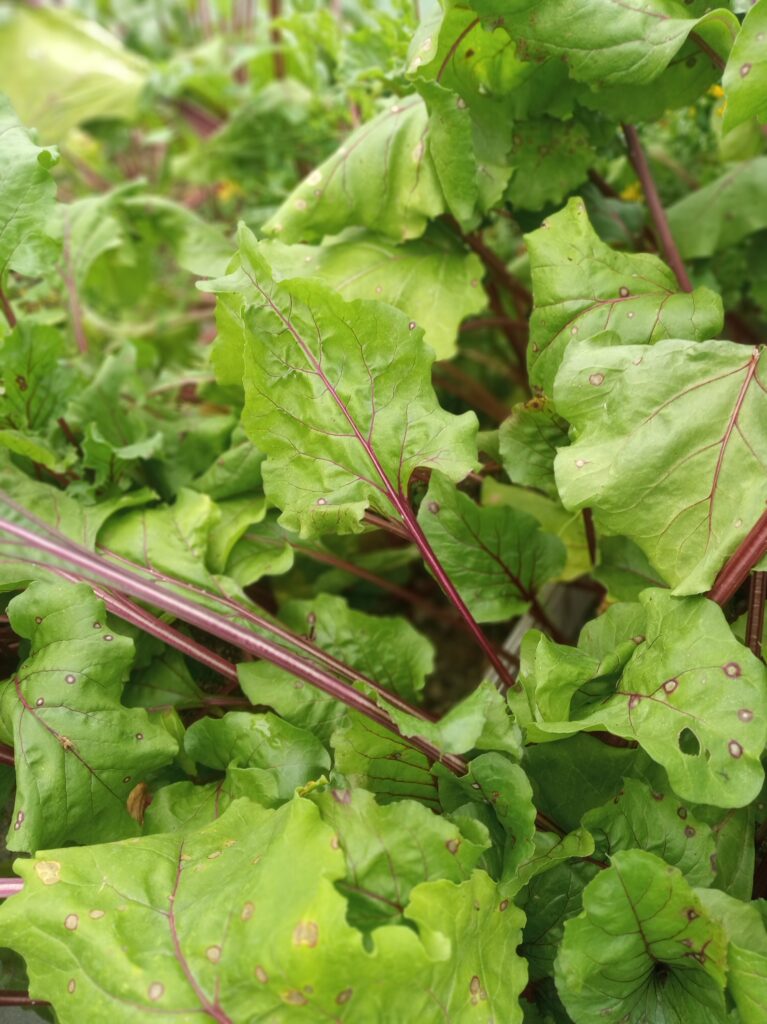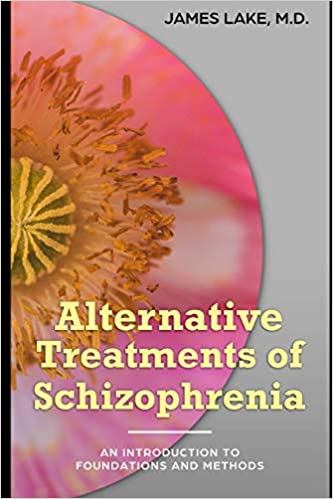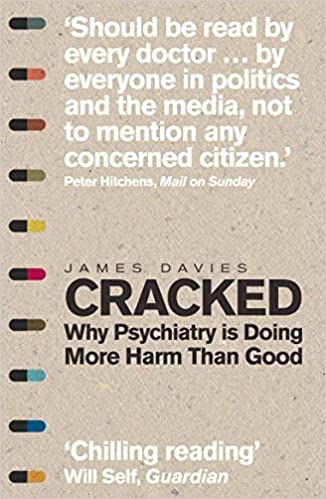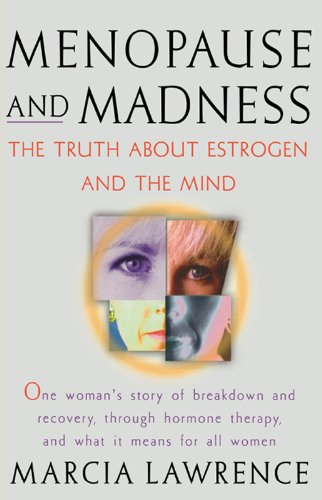Anxiety and Depression EatYour Way To Better Health
When it comes to mental health, what you eat can make a big difference. Research shows that a diet rich in foods like fruit, vegetables and seeds helps protect your mental health.
Making healthier food choices will improve your physical and mental health and fitness.
Eating high-quality foods that contain lots of vitamins, minerals, and antioxidants nourishes the brain and protects it from oxidative stress — the “waste” (free radicals) produced when the body uses oxygen, which can damage cells.
Diets high in refined sugars are harmful to the brain. In addition to worsening your body’s regulation of insulin, they also promote inflammation and oxidative stress. Multiple studies have found a correlation between a diet high in refined sugars and impaired brain function and even a worsening of symptoms of mood disorders, such as depression.
Symptoms of depression dropped significantly among a group of young adults after they followed a Mediterranean-style pattern of eating for three weeks. Participants saw their depression “score” fall from the “moderate” range down to the “normal” range, and they reported lower levels of anxiety and stress too.
Alternatively, the depression scores among the control group of participants — who didn’t change their diets — didn’t budge. These participants continued to eat a diet higher in refined carbohydrates, processed foods and sugary foods and beverages. Their depression scores remained in the “moderate severity” range.
Participants who had a greater increase in fruit and vegetable intake showed the greatest improvement in depression symptoms.
Participants increased consumption of whole grains to a recommended three servings per day, as well as three servings per day of protein from eggs, tofu and beans. In addition, they were told to get at least three servings of fish per week.
As for dairy, the recommendation was three servings per day, unsweetened. Participants were also instructed to consume three tablespoons of nuts and seeds per day, as well as two tablespoons of olive oil per day, and were advised to add in spices, including turmeric and cinnamon.
Using a device called a spectrophotometer, the participants had their palms scanned. The device can detect the degree of yellowness in your skin, which correlates with your intake of carotenoids, which you get from eating fruits and vegetables.
Organisations such as Food and Behaviour Research are really helping to shape our understanding of how and what nutrition influences our minds! (www.fabresearch.org is seriously worth a look, there is a staggering archive of research there).
Here’s a look at specific foods and eating habits that will help boost your mental health!
Eat Foods Rich in Omega-3 Fatty Acids
Growing evidence suggests that omega-3 fatty acids (abundant in oily fish such as sardines, salmon, and mackerel) may have a role in brain functioning, with deficiencies in omega-3 fatty acids linked to mental health problems.
- To increase your intake of omega-3 fatty acids, consume foods such as:
- Wild Alaskan salmon
- Sardines
- Anchovies
- Mackerel
- Other oily fish
- Walnuts
- Flax and chia seeds
- Canola oil
- Purslane (an herb)
In addition to whole foods, good sources of omega-3s are fish oil, flaxseed oil, and echium oil, but it’s a good idea to check with your healthcare provider first if you are pregnant, nursing, take medication, or have any concerns.
Pump Up on Probiotics
EasiYo Wellbeing Greek Style Unsweetened Yogurt Mix – Pack of 6
Probiotics are best known for their role in digestive health, but emerging research suggests that bacteria in the gut sends and receives signals to the brain (known as the gut-brain axis).
The majority of studies found positive effects of probiotics on depression symptoms.
Take note, however, that it is possible for someone who is immunocompromised to contract an infection—fungemia or bacteremia—from probiotic supplements. Talk to your doctor before starting a course of probiotics.
Reach For Whole Grains
Now Foods Organic Steel Cut Oats, 907g
Whole grains are important sources of B vitamins, nutrients vital for brain health. For example, thiamin (vitamin B1) is involved in turning glucose into energy, pantothenic acid (vitamin B5) is needed to produce the neurotransmitter acetylcholine (involved in learning and memory), vitamin B6 helps to convert the amino acid tryptophan into serotonin, and vitamin B12 is involved in the production of neurotransmitters such as serotonin and dopamine, among others, all of which help to regulate mood.
Look for grains in their whole form, such as:
- Steel-cut oatmeal
- Quinoa
- Brown rice
- Amaranth
- Millet
- Bulgur
- Wild rice
Whole grain foods can be confusing. A rule of thumb when reading food labels is that for every 5 grams of carbohydrate, a product should have at least one gram of dietary fiber to be considered whole grain.
Load Up on Leafy Green Vegetables
PREMIER SEEDS DIRECT – Spinach – Perpetual – 14 Gram ~ 700 Seeds
Spinach and other green vegetables contain the B vitamin folate. Although the connection isn’t fully understood, low folate levels have been consistently associated with depression in research.
A study published in the Journal of Psychiatric Research in 2017, for instance, analyzed previous studies and found that people with depression had lower blood levels of folate and lower dietary intake of folate compared to those without depression.
Folate deficiency may impair the metabolism of serotonin, dopamine, and noradrenaline (neurotransmitters important for mood).
Folate-rich vegetables include:
- Spinach
- Edamame
- Artichokes
- Okra
- Turnip greens
- Lentils
- Avocado
- Broccoli
Folate is also plentiful in beans and lentils, with a cup of cooked lentils providing 90 percent of the recommended daily allowance.
Don’t take folic acid supplements without consulting your health care provider. In some cases, it may cause adverse effects and there are potential risks for some people (such as those who have had colon polyps or cancer).
Enrich Your Diet With Foods High in Vitamin D

Known as the sunshine vitamin, this nutrient is made naturally in the body when skin is exposed to the sun’s ultraviolet B (UVB) rays. In the past few years, research has suggested that vitamin D may increase the levels of serotonin, one of the key neurotransmitters influencing our mood, and that deficiency may be linked with mood disorders, particularly seasonal affective disorder.
In addition, preliminary research suggests that vitamin D deficiency is a risk factor for depression in older adults.
Some people are at greater risk for a vitamin D deficiency. Darker skin, for instance, has more melanin, a substance that blocks ultraviolet rays.
Working indoors during the day, living further from the equator, or being in an area with greater air pollution also increase your risk of vitamin D deficiency.
Canned salmon with bones is rich in vitamin D and is also a source of omega-3 fatty acids. Look for Alaskan pink salmon or sockeye salmon with bones. Other foods include:
- Cheese
- Egg yolks
- Foods that may be fortified with vitamin D (milk, soy milk, and orange juice)
Its a very rainy August day here in Mooncoin County Kilkenny in Ireland and we are all still in the middle of the terrible coronavirus global pandemic!
People are struggling to cope with the coronavirus pandemic after months of harsh lockdowns, widespread disease and economic suffering!
The number of people reporting adverse mental health or behavioral changes like drinking alcohol or drug use is on a perilous rise in recent months.
About a quarter of people reported symptoms of an anxiety disorder, three times higher than what a similar survey found a year ago. Those reporting depression has quadrupled, to nearly a quarter.
Markedly elevated prevalences of reported adverse mental and behavioral health conditions associated with the COVID-19 pandemic highlight the broad impact of the pandemic and the need to prevent and treat these conditions.
Most at risk are those who are already undergoing treatment for a previously diagnosed mental health condition!
Today I have just finished reading a heartbreaking insightful autobiography by Denise Welche called The Unwelcome Visitor which describes Denise’s life living with clinical depression, a debilitating and often a terminal illness which is greatly misunderstood in society!
I think this book should be read by people who suffer from depression , and also by the people close to them to enable them to understand and support.
Denise’s clinical depression started after the birth of her first child she had severe post natal depression.
Many women will experience mild mood changes after having a baby, known as the “baby blues”. This is normal and usually only lasts for a few days.
But severe post natal depression is very different from the “baby blues”. It’s a serious mental illness and should be treated as a medical emergency.
It’s sometimes can lead to puerperal psychosis or postnatal psychosis.
At the time there was not a lot of knowledge about post natal depression and how to treat it and it wasn’t until thirty years later that Denise received Hormone Replacement Therapy which greatly improved her depression symptoms!
Unfortunately there is no known cure for clinical depression but it can be managed in Denise’s case with HRT, Cognitive Behaviour Therapy, a healthy diet and completely avoiding alcohol and recreational drugs!
Diet And Psychotic Illnesses
The New Optimum Nutrition Bible

They are packed full of essential vitamins and minerals which are necessary for good mental health
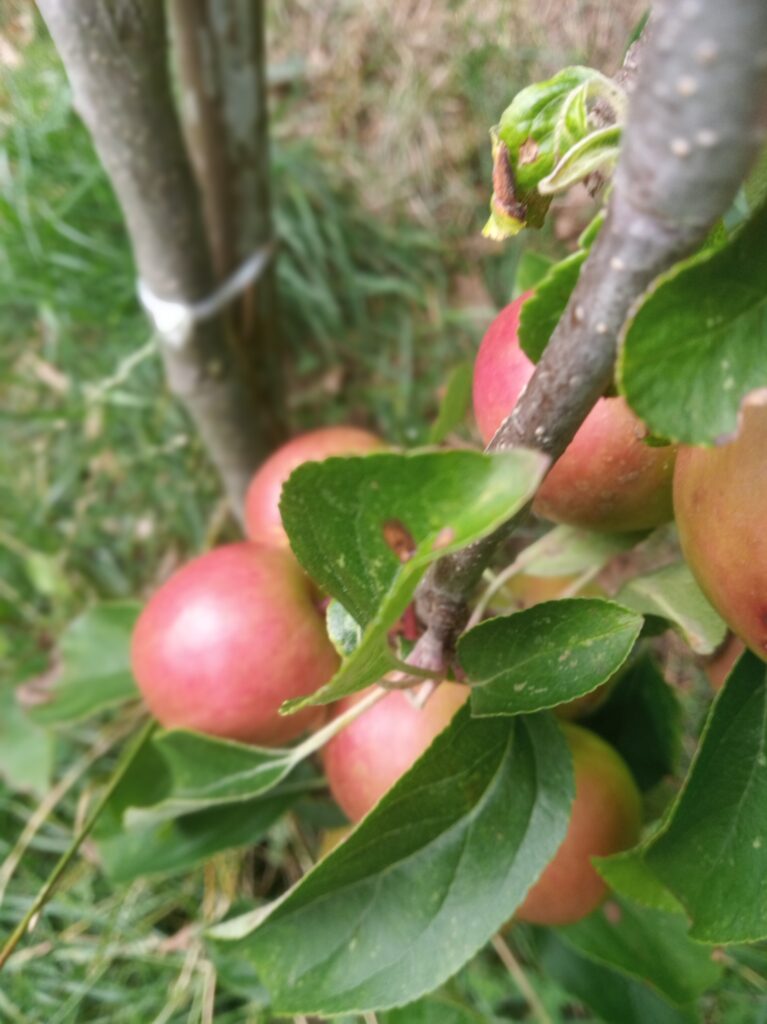
Our foxhound Elvis is always robbing apples from the lower branches of our small apple tree.
He is a big fan of fruit and vegetables too!
Antipsychotics, even if they were a necessary intervention during a crisis, does not mean that a person needs to be on them for life.
Cracked: Why Psychiatry is Doing More Harm Than Good
- Researchers have found that in many cases, there were medical conditions that were mistaken as mental issues.
- Another nutritional aspect of mental health that is very often overlooked is blood sugar management. It is a simple skill to master really, but the impact that it can have on your mind and mood is quite staggering. Basically different foods, because of their composition, will release their energy at different rates.
- Pure glucose, for example, will send blood sugar up very rapidly and vigorously. Glucose is actually the benchmark against which all other foods are measured. It is the simplest form of sugar, so requires no digestive effort. It goes straight into circulation. Foods vary in their make up and complexity and certain factors will influence how rapidly foods release their energy. Fibre is one of the biggest factors. Let’s compare white and brown bread, for example.
- Proper brown bread has all the fibre from the wheat husk and many brown breads have additional seeds and fibres added as well. White bread, on the other hand, has had all of the husks removed and the fibre content is drastically lower.
- The fibre in the brown bread will simply make the sugars in the bread harder to get to and will require more digestive effort to release them. With the refined white bread, on the other hand, the lack of fibre makes the sugar much easier to get at. In the higher fibre food, the sugar is released at a slower, steady pace, whereas with refined foods it is released at a very rapid pace as it takes far less digestive effort to liberate the glucose. Another influence on this are the combinations in which you eat certain foods.
- Adding protein to your carbohydrates for example will require a great deal more digestive effort to liberate the glucose, as proteins are digested more slowly so there is a lot more work for the digestive system to do when you have a combination of protein and carbohydrate. The result is a slow even drip-feeding of glucose into the bloodstream rather than a giant surge.
- Why does any of this matter? Because, if you consume foods that flood your bloodstream with sugar, the initial feeling is rather pleasant. You get a high. But this barrage of sugar is no good for us at all and the body has very fast-acting, responsive ways of dealing with it. When it occurs, we rapidly secrete insulin. This hormone tells our cells to take in glucose as quickly as possible and put it to good use. If blood sugar stays that high for long it can cause damage. The problem is, when this happens, our blood sugar plummets and we get a sugar dip. This makes us feel tired, groggy, irritable and can make our moods spiral downwards. This is why balance is important!!!
- While the physiology and so on may seem a tad complex, putting all of it into practice is rather straightforward.Here are the golden rules: GO WHOLESOME: It’s time to ditch the white refined grain products. White bread, white rice, white pasta: in the bin! Instead move over to whole grain versions. These have their fibre intact, so will be harder to digest and will release their sugars slowly. It is also worth bringing your overall intake down a little; we are all eating a few too many carbs.
- FOOD COMBINE: Making better choices in terms of the carbohydrates that we eat is one part of the picture. The other part is how you compose your meals. Always aim to have a good-quality carbohydrate with a good source of protein. So, salmon with quinoa, scrambled eggs on toast, fish with vegetables and sweet potato wedges. You get the picture. By having a good source of protein, you slow down the release of the sugars from the meal, giving blood sugar a nice slow consistent drip-feeding,. Nice and simple.
Grilled halloumi with pomegranate quinoa salad Recipe.
This is a nice filling lunch, perfect for those days when you may not get a chance to eat until quite late and you want to fill up but keep it healthy, too.
It will stabilise your blood sugar and provide a B vitamin boost. Ready-prepared pomegranate is readily available in supermarkets now, so is hassle-free.
SERVES 1 50g quinoa 2 tbsp pomegranate seeds 1 tbsp pitted black olives, chopped leaves from a small bunch of parsley, chopped sea salt and freshly ground black pepper 4 slices of halloumi cheese, a little olive oil.
Place the quinoa in a saucepan and cover with boiling water. Simmer for around 20 minutes, until the quinoa is softened and a small tail has formed on the grain (I’m not making it up!). Drain.
Mix the quinoa with the pomegranate seeds, olives and parsley, with a little salt and pepper. Place the halloumi on a lightly oiled griddle pan or frying pan and lightly fry for two or three minutes each side, until turning golden brown. Serve the halloumi on top of the quinoa with a mixed leaf salad!
I read an excellent book called Menopause and Madness by Marcia Lawrence. Lawrence reveals in this book that some women who suffer from oestrogen loss are often misdiagnosed. Instead of the oestrogen replacement therapy that they so desperately need, these women are routinely referred to psychiatrists where they are given psychoactive drugs or are even institutionalised.
NICE guidelines recognise that mental health issues can be part of the symptoms of the menopause and have a series of recommendations about how to deal with them such as Hormone Replacement Therapy (HRT) or Cognitive Behavioural Therapy (CBT).
Many psychiatrists believe that severe mental health problems like schizophrenia must be treated with medication, but if you don’t want to take antipsychotics, there are alternative treatments you can try. You may find it’s possible to manage your symptoms, or to make a full recovery, without medication.Click on the following links for alternative treatments.
Treatment plans can combine several or many different therapies. Through talk therapy of various kinds, patients can honestly express themselves, face their fears, better understand their illness, and begin to identify triggers and learn how to prevent and control them.
Cognitive-behavioral therapy helps patients to undo negative or unhealthy thought and behavior patterns, as well as rationalize fears and anxieties, balance mood swings, and continuously and gradually work towards a more complete internal peace.
Exposure therapy allows patients to face their fears, anxieties, phobias, and triggers within a safe, familiar and controlled environment. The opportunity to experience exposure therapy naturally results in more comfortable encounters for these patients when dealing with their fears in the outside world.

Living with Voices: 50 Stories of Recovery
There are lots of different ways of understanding and relating to hearing voices and other similar sensory experiences.
Some people view their experiences as a symptom of a mental health problem, relating to diagnoses like psychosis, schizophrenia, anxiety, depression or PTSD.
Others may understand their experiences as a natural response to trauma or adverse life experiences (such as childhood abuse, poverty, discrimination, racism, victimisation or social isolation).
Others may see their voices as a gift or sensitivity, an ability that can be a valued part of their life.
Others may experience them as an unwanted force in their lives that they are struggling to manage.
Conventional approaches in psychiatry to the problem of voice hearing have been to ignore the meaning of the experience for the voice hearer and concentrate on removing the symptoms (audio hallucinations) by the use of physical means such as medication.
Although antipsychotic medication is helpful to some sufferers of psychosis , there is a significant proportion that still experience the ‘symptoms’ such as hearing voices despite very high doses of injected antipsychotic medication which cause severe side effects.
Also anti-psychotic medication prevents the emotional processing and therefore healing, of the meaning of the voices.
Hearing voices in itself is not related to the illness of schizophrenia. In population research only 16% of the whole group of voice hearers can be diagnosed with schizophrenia.
The prognosis of hearing voices is more positive than generally is perceived. In Sandra Escher’s research with children hearing voices she followed 82 children over a period of four years. In that period 64% of the children’s voices disappeared congruently with learning to cope with emotions and becoming less stressed.
In children with whom the voices were psychiatrised and made a part of an illness and not given proper attention, voices did not vanish, but became worse, the development of those children was delayed.
Other supplemental treatments such as exercise, yoga, massage, sauna therapy, aromatherapy, acupuncture, massage therapy, equine therapy, art therapy, and meditation support the person’s overall progress.
Herbs, vitamins, minerals, and supplements can also make substantial differences. Research shows that nutritional deficiencies are often an overlooked contributor to mental disorders. Identifying and fixing deficits produces amazing results.
The research, published in the world’s leading schizophrenia research journal, Schizophrenia Bulletin, found that early psychosis is associated with large deficits in blood levels of critical nutrients, with particularly low levels of vitamin B9 (folate) and vitamin D.
Folate is naturally present in a wide variety of foods, including vegetables (especially dark green leafy vegetables), fruits and fruit juices, nuts, beans, peas, seafood, eggs, dairy products and grains .
Spinach, asparagus, and brussels sprouts are among the foods with the highest folate levels.
Furthermore, these nutritional deficiencies were found to be associated with worse mental health in people with early psychosis.
Although just one of many factors, it is important to recognise that nutritional deficiencies could certainly be contributing to the poor physical and mental health outcomes often observed in people with psychosis.
Since both of these nutrients are vital for physical and psychological wellbeing, this finding emphasises the importance of promoting a healthy diet for people with psychosis.
An article that was published in April 6, 2019 in the medical journal Schizophrenia Research describes two patients with longstanding schizophrenia who experienced complete remission of symptoms with the ketogenic diet, a well-established, evidence-based treatment for epilepsy.
Of particular interest in the research, both patients were able to stop antipsychotic medications and have remained in remission for years now. Though more evidence is certainly needed, this is extraordinarily hopeful news for those with this disorder and for the mental health professionals treating them.
If you have schizophrenia or any serious disorder and are considering using the ketogenic diet as a treatment, I strongly recommend that you consult with a healthcare professional before trying this diet. Why? Because mental illnesses are serious disorders. The medical version of the ketogenic diet has risks and side effects.
You should have accurate information, help, and medical supervision to implement treatments in a safe and effective way. All of the patients described in all of these studies were treated by physicians while attempting the ketogenic diet.
A healthy diet is certainly an important part of the picture for good mental health but so are physical activity, good psychological care, medication [if absolutely necessary ], adequate sleep, adequate exposure to nature and a balanced lifestyle!
